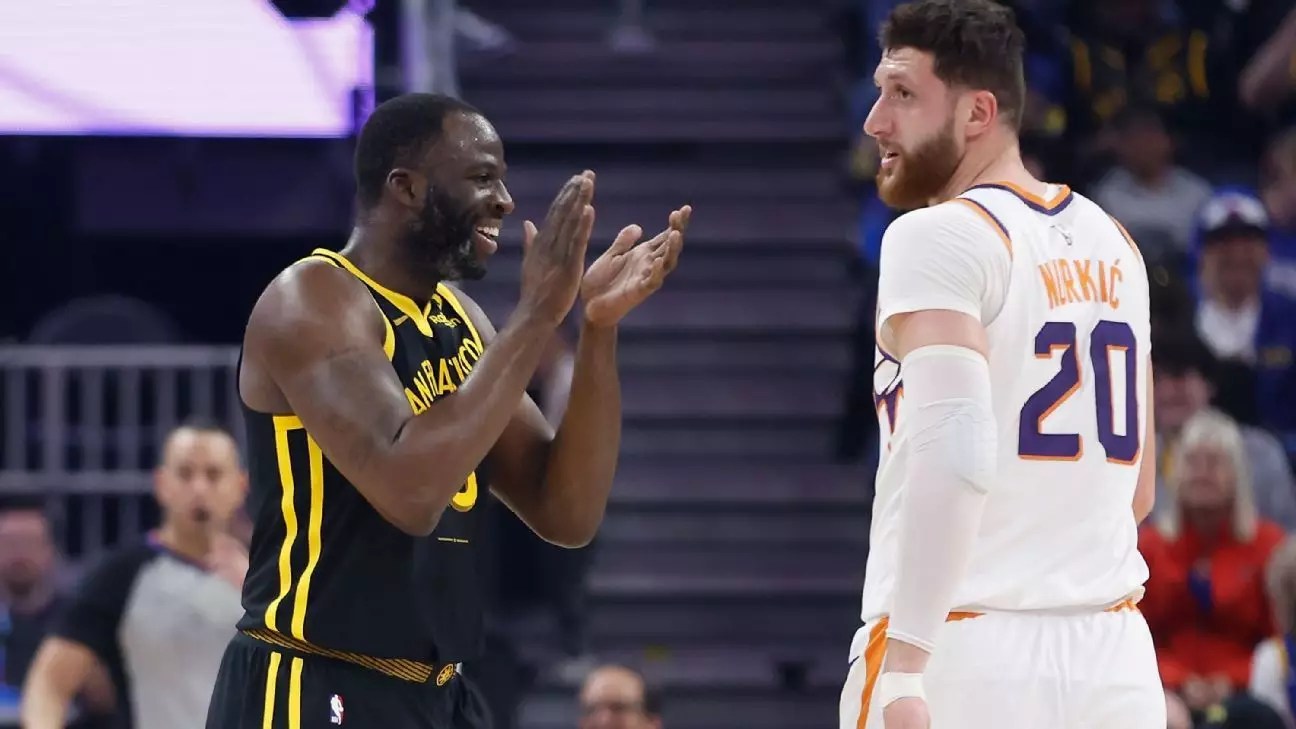In a recent game between the Golden State Warriors and the Phoenix Suns, tensions ran high as Draymond Green and Jusuf Nurkic engaged in a series of taunts and gestures. This incident marks the first meeting between the two teams since Green’s suspension for hitting Nurkic in the head, resulting in a 12-game absence from the court. However, despite his reinstatement and the mandatory counseling he underwent, Nurkic asserts that Green has not learned from his past mistakes. Such criticism raises questions about Green’s behavior and whether he has truly transformed.
Questioning Green’s Growth
Nurkic’s scathing comments have drawn attention to Green’s conduct and its perceived lack of improvement. According to Nurkic, it is only a matter of time before Green repeats his past actions, suggesting that he has not undergone a genuine change. This assessment challenges the notion that Green’s suspension and mandatory counseling were effective in rectifying his behavior. Moreover, Nurkic’s remarks prompt reflection on the effectiveness of the league’s disciplinary measures and the extent to which they foster long-term behavioral change.
In response to Nurkic’s criticism, Green took a defensive stance, proclaiming that he played well during the game and resisted Nurkic’s attempts to agitate him. Green’s assertiveness and refusal to succumb to Nurkic’s taunts suggest a level of self-confidence and resilience. However, his dismissive attitude towards Nurkic’s comments raises doubts about his willingness to address his past misdeeds and display genuine remorse.
Warriors’ Perception of Green’s Transformation
While Nurkic’s remarks resonated throughout the Warriors’ locker room, the team’s players and staff view Green’s behavior in a different light. Embodied in Green’s on-court actions against the Suns, the Warriors perceive Green’s antics and his ability to control them as indicators of change. Head coach Steve Kerr attributes this transformation to the suspension, which forced Green to confront the consequences of his actions and reassess his behavior. The Warriors believe that Green’s recent performances demonstrate his commitment to showing his true character rather than succumbing to the impulsivity that led to his suspension.
Kerr emphasizes that he does not expect Green to be excessively cautious or overly restrained. He recognizes the value of Green’s passionate and fiery approach to the game, highlighting the importance of maintaining a delicate balance. Green’s ability to channel his intensity in a constructive manner, as exhibited in the game against the Suns, is viewed as a positive sign of growth and maturity. This sentiment is echoed by Stephen Curry, who appreciates Green’s contribution both defensively and offensively, particularly in high-pressure situations.
The clash between Green and Nurkic during the recent game serves as a microcosm of the ongoing debate surrounding Green’s transformation. While Nurkic asserts that Green remains unchanged, the Warriors view the incident as evidence of his growth. This difference in perception reflects the complexity of personal development and the challenge of discerning genuine change within individuals. Ultimately, it is the consistency of Green’s behavior over an extended period that will determine the true extent of his transformation.
The ongoing scrutiny of Draymond Green’s behavior highlights the difficulty in evaluating personal growth and behavioral change. While criticisms from players like Jusuf Nurkic cast doubt on Green’s transformation, the Warriors’ perception of his recent performances indicates positive development. As Green continues to navigate the delicate balance between his intensity and sportsmanship, only time will reveal the true nature of his transformation.


Leave a Reply